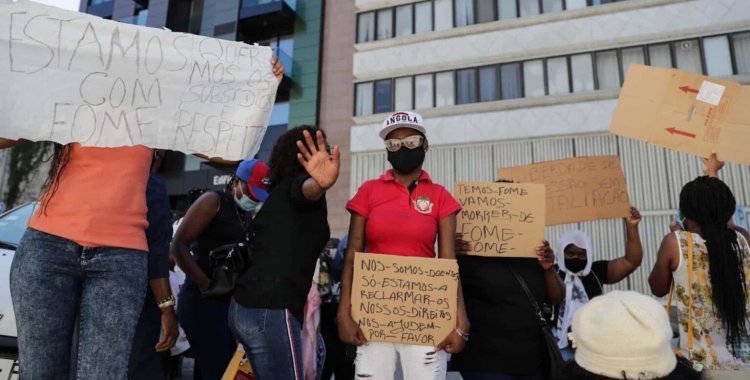"In Angola the basics do not exist. For patients like us, many transplanted, at the slightest infection we can die. Here, despite the many difficulties, we still have assistance, consultations and medicines. secretary-general of the Association of Angolan Patients in Portugal (ADAP).
Vitorino Leonardo, a transplant patient in Portugal, sees with increasing concern the "increasing" difficulties that his countrymen are going through, since in January last year the Government announced the closure of the health board in Portugal.
The decision meant the return to Angola of some patients, without the means to continue in Portugal, since the financial support and accommodation they had received until then ended.
More than a hundred chose to stay at their own risk. They had to leave the pensions where they lived, whose income was borne by the executive, and they now live with family members or in spaces they rent, with some help from the families who stayed in Angola.
Most, said Vitorino Leonardo, have to go get food from institutions, but the worst thing is the shortages in terms of medicines and supplements, for which the money is not enough.
"A transplant patient, for example, has many diseases. I have a transplanted kidney, but I have diabetes, hypertension. Like me, many colleagues cannot afford the vitamins and supplements we need and which are not reimbursed. And even the medicines reimbursed, the money is rarely enough to pay the sick part", he said.
And he lamented: "The first medicine is food and that is the one that many of these patients are not able to take properly".
According to Vitorino Leonardo, only a very small percentage of patients are able to keep a job to pay their expenses.
"Just yesterday, a lady died. She had very fragile health, worked in cleaning, but she got covid and, as she had no defenses, she couldn't resist and died. This news is all the time", he said.
Keeping a job with these diseases is an almost impossible mission: "These patients miss appointments, treatments, they go down easily and nobody wants a worker like that".
In addition to physical damage, psychological damage is added, as dependence, lack of answers and guarantees mean that these patients are unable to "move on".
Vitorino Leandro's concerns are also related to the dozen patients who, at the expense of the State, are in Portugal, in the pension where dozens have lived there.
"They have guaranteed housing and a subsidy, but they are in very bad condition and on top of that, subsidies have been delayed for many months," he said.
When describing this year that has passed since the end of the health board in Portugal, Vitorino Leandro said that no one regrets having stayed. "Angola is a death sentence for these patients. Here, at least, we are alive," he said.
On January 30 of last year, the Government announced the closure of the health board in Portugal, as of February of that year, after an audit that identified several abuses in the use of this mechanism.
At the time, the executive said that 385 people were on the medical board in Portugal (245 patients and 108 companions).







